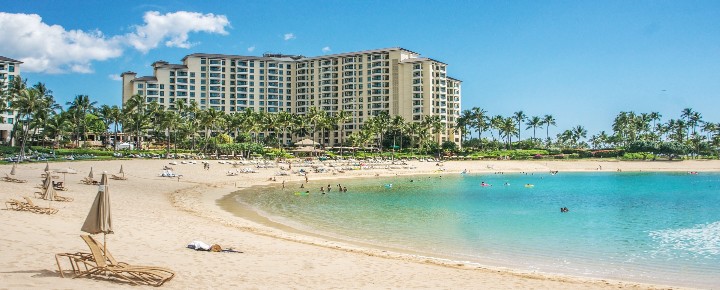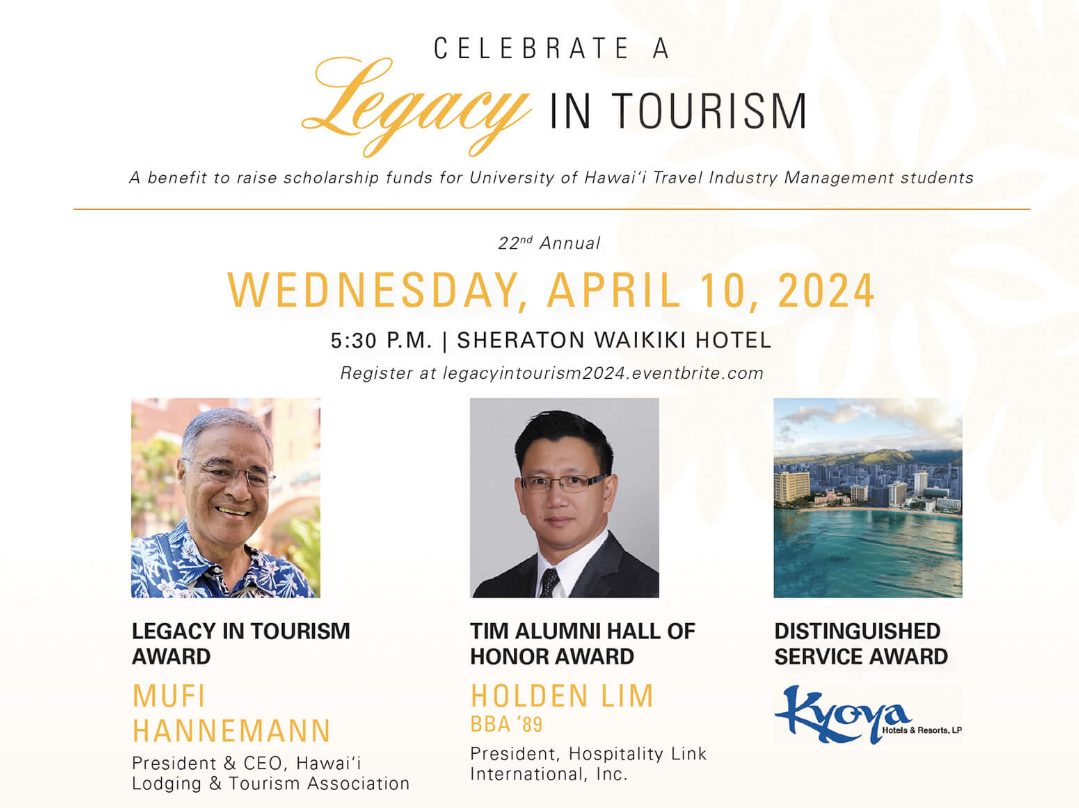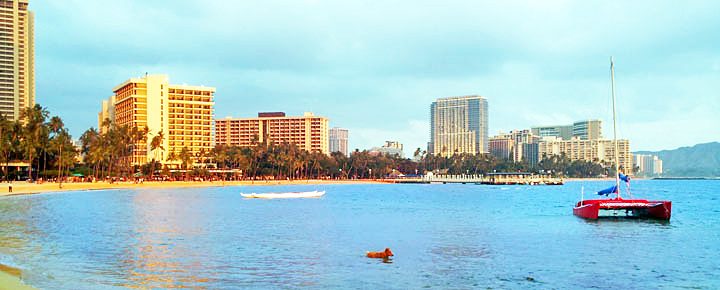The relationship between the Hawaii hotel industry and state officials has both raised concerns and been a cornerstone of the islands’ economy, driving growth and helping shape policies. Are these beneficial collaborations or a troubling sign of overlapping interests?”


As Hawaii tourism continues to evolve, however, concerns about the depth of these connections have surfaced in our minds and yours, as reflected in your myriad of comments. This has prompted questions about transparency, and regulatory decisions related to both hotels and Hawaii vacation rentals. This has broad implications for residents and Hawaii visitors.
The topic came to mind based on a recent hospitality award that was bestowed by the state. Regular visitor Pat G. (who’s left 500 comments on Beat of Hawaii) said this regarding Hawaii vacation rentals:
“Why are hotels more deserving to maintain their short term rental status than short term rentals? And yet, curtailing hotel room rentals and curtailing hotel expansion is never even discussed.”
The intricate web connecting Hawaii’s hotel industry and state government causes many to question whether these relationships serve the public interest or may warrant closer scrutiny. And when looking at Hawaii’s physical landscape alone, it appears that, as Pat said, state policies have long favored the hotel industry. Those may relate to zoning laws, environmental regulations, taxes, and other things. And it remains unclear whether oversight is adequate.
“How are there 5 new boutique hotels in downtown Honolulu, and one new hotel in Kapolei, while the government threatens STR (short term rental) owners?”
Beat of Hawaii Reader, Kevin.
As Hawaii continues to navigate the challenges of its tourism-driven economy, the relationships between state officials and the hotel industry remain under the microscope. Addressing these concerns through enhanced transparency, equitable policy-making, and active community engagement is crucial to ensuring that Hawaii’s future is shaped by the interests of its residents and visitors to Hawaii, still one of the world’s most beloved destinations.


Mufi Hannemann receives “Legacy In Tourism Award.”
Last week, Mufi was celebrated at an industry gala, which is a fundraiser for the UH School of Travel Industry Management. Funds raised went to scholarships.
Mufi Hannemann serves as the president/CEO of the Hawaii Lodging and Tourism Association, representing Hawaii hotels, and most recently, the chairperson for the Hawaii Tourism Authority board. He has long lobbied on behalf of Hawaii hotel interests. When Mufi became HTA chair, he replaced Blayne Miyasato of Hawaiian Airlines, who stepped down after barely six months. His appointment was met with questioning, including from other state officials.
Mufi’s appointment was controversial, and he remains enigmatic.
Mufi served as Honolulu mayor from 2005-2010 and pushed for, among other things, the Honolulu Rail, a project which has met with very mixed reactions due to, among other things, extraordinary cost overruns, low ridership and being incomplete. Others have suggested there has been a lack of transparency throughout the entire project.
Mufi has been a divisive figure in Hawaii politics, including what others have called being heavy-handed in dealings with others. When he campaigned for governor in 2010, there were complaints about inappropriate tactics, with which Hannemann denied involvement. As a politician, Mufi has swayed between affiliating with the democratic party, the republican party, and being an independent. That has also led to questions about his political convictions and opportunism. Overall, Hannemann’s career has and continues to feature significant controversy.
“Mufi (Trolley Folly) Hanneman and Co. are laughing all the way to the bank after they drove a stake into the heart of STRs.”
Beat of Hawaii Reader, Don.
As always, we welcome your input on this subject. Mahalo!







Hawaiians are disgusted with how State politicians are greedy for their lobby money. Unfortunately, lobbying is not an issue exclusive of Hawaii, and, unless we start voting them out, they’ll continue counting their lobby bills from hotels, and hotels will continue to do whatever they want.
I completely agree!
It’s fairly simple if you’re paying attention… follow the money or in other words, if you need to ask the question, you already know the answer. The ‘small guys’ get blamed/punished for the rise in ‘over tourism’ while the ‘big guys’ laugh all the way to the bank, which coincidently is located on the mainland.
Totally agree!
“Yes”
Aloha Rob and Jeff. I have found some of your recent articles very interesting as far as hotels pushing str’s out, nightly rates, etc. Also the tourists complaining about rates and the lack of Aloha towards visitors. So I decided to follow the money, and found an interesting article that explains a lot of it. It would appear that a lot of lobbiest influence is actually from the mainland. I won’t give a link, but my source was Dec. 18, 2023 issue of Hawai’i Business Magazine. It is a well researched article that gives a lot of answers. Mahalo
Randy, I found the article you referenced. Not surprised mainland private equity is behind much of the hotel ownership on the islands, and therefore is behind a lot of the lobbying efforts. But the article also discusses locally-based private equity as having an increasingly-significant share in some of the larger hotels.
Anyway, thanks for the reference. The article does provide a “big-picture” perspective not usually seen by those of us down in the weeds. 🙂
Hotels are (and have been for over 70 years) purposely built in areas zoned for this type of business, pay GET/TAT taxes, hire staff that supports HI’s economy, create business opportunities around the hotel and are easier to regulate. Airbnb, VRBO and the like (which are relatively new business models) do not meet these standards, frequently create real problems (noise, parties, parking, traffic) for adjacent residential properties and their owners, are extremely difficult and costly to regulate and have limited financial benefits to HI. In addition, the original idea of renting out a room has expanded into a business model that is more like a small hotel without any of the required controls. They are not the same.
I am both a host and a frequent Airbnb guest, and I do not see things your way.
I always stay at the Mauna Kea to get over the jet lag when I first arrive Hawai’i. There are no business opportunities near the hotel, as there are no businesses within 25 miles of the Mauna Kea. You are basically forced to dine there 3 meals a day. And the staff I’ve spoken with are not paid a decent wage, and many travel by bus from Hilo just to get to work.
Airbnb hosts pay more taxes than big corporate hotels.
I pay my local housekeepers $50 an hour to clean, and I hire local gardeners and handypeople. More, my guests shop at local grocery stores and dine locally. This money stays on island, the Marriott is worldwide.
Ray – as a condo STR owner (using VRBO) I couldn’t disagree more. You say hotels: “pay GET/TAT taxes” – so do we; “hire staff that supports HI’s economy” – we pay housekeeper, on-island rep, local trades people for maintenance, shop locally for condo upkeep; “create business opportunities around the hotel” – our guests do the same things hotel guests do and support local businesses. Here’s the difference you fail to point out: STRs compete with Hotels to bring down prices and Hawaii’s Hotel monopoly wants to stop them.
This is textbook corruption. You would have to be crazy to not see it. And it’s been going on forever. Hotels charge what they want, unchecked. Then they get a little competition in STR’s and BAM! The gov officials on the Hotel industry lobby payroll come running and save the day for them. While the average person struggles.
Same thing happened with the ferry system. Remember that? Yet the train disaster happens because it didn’t hurt the hotel or car rental industry.
I really wish we would stop pretending and just call it what it is…. Corruption.
Thank you for the sane response.
Mufi Haneman created the Hawaii tourism agency so he would have a job to go back to whenever he’s not in the political arena… it’s Mufi’s baby and it’s tie in with the state government… no secret there!
Maui County STR-reducing Strategies
A Brief History of Recent Maui STR Legislation
– Let’s try neighborhoods. “STRs destroy neighborhoods! Let’s cap STRs in neighborhoods!” Done.
-Not enough…other ideas? Ah, let’s blame “Overtourism”. “If we get rid of STRs, it will reduce the tourist load! Let’s cap STRs in All zones. Oh, wait, except for one zone….the Hotel zone – don’t touch that one!”. Done.
(Hotels hold tourists, do they not?)
-STRs Still trouncing hotels. How about “STRs take away housing!” More STR bills introduced.
STRs divert $$ from hotels. Attempts will continue to try to reverse this.
The Sad Truth: These strategies have zero to do with serving the needs of the people.
Of course there is a concerning relationship, the State Government is attacking local small business (AirBnB, etc.) cutting them out of tourism, while not imposing the same on out of state hotel chains.